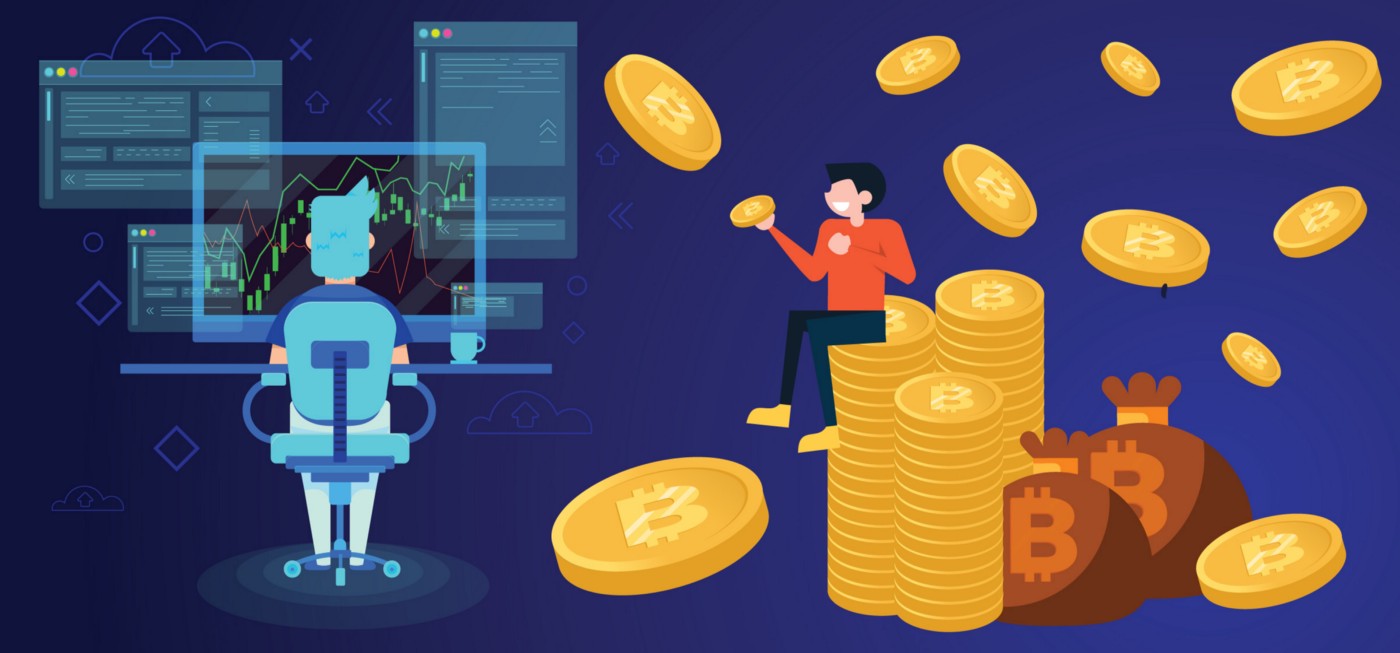#investing #bitcoin #futures #trade #traders
“The best kind of trades are those where the outcome is known with 100% certainty. You might wonder whether such trades exist. The short answer is Yes, they do”— Paul Ebeling
These opportunities to make risk-free money are known as arbitrage opportunities and are the holy grail for all traders.
Most crypto traders are familiar with arbitrage across spot exchanges, i.e. buy and sell a crypto on two exchanges with different prices. However, arbitraging across bitcoin futures exchanges is something that is not very well understood yet.
Futures arbitrage across crypto derivatives exchanges is what we aim to demystify in this 1 article, tune in.
People are asking this Big Q: How do I invest in Bitcoin futures:
The Big A is simply this…
…Bitcoin futures enable investors to gain exposure to Bitcoin (BTCUSD) without having to hold the underlying cryptocurrency.
The Cboe Options Exchange offered the 1st bitcoin futures contract on 10 December 2017. In addition to standard bitcoin contracts, the exchange offers Micro Bitcoin futures, which are 1/10th the size of a standard bitcoin, and options on bitcoin futures.
Other venues, like Bakkt and Intercontinental Exchange (NYSE:ICE), offer daily and monthly bitcoin futures contracts for physical delivery.
Bitcoin futures serve many purposes, each unique, for different players in the Bitcoin ecosystem.
For Bitcoin miners, futures are a means to lock in prices that ensure a return on their mining investments, regardless of the crypto’s future price trajectory.
Investors use bitcoin futures to hedge against their positions in the spot market.
There are several benefits to trading bitcoin futures instead of the underlying cryptocurrency.
1st, bitcoin futures contracts are traded on an exchange regulated by the Commodity Futures Trading Commission, which might give large institutional investors some measure of confidence to participate.
2nd, because the futures are cash-settled, a Bitcoin wallet is not required. No physical exchange of bitcoin takes place in the transaction. Thus, a bitcoin futures trade eliminates the risk of holding a volatile asset class with steep price changes, and,
3rd, futures contracts have position limits and price limits that enable investors to curtail their risk exposure to a given asset class.
In October 2021, investors became able gain exposure to bitcoin without buying or selling futures themselves.
The ProShares’ Bitcoin Strategy Fund (BITO) tracks CME bitcoin futures. The ETF started trading on 19 October 2021, as the 1st bitcoin ETF.
Growth of the bitcoin futures market has paralleled that of the cryptocurrency’s spot market. Cryptocurrency exchanges were the 1st venues to offer bitcoin futures trading capability.
The launch of bitcoin futures trading at CME and Cboe changed the status quo. While Cboe has discontinued bitcoin futures trading at its venue, CME has doubled down on cryptocurrencies and introduced other derivative products related to it.
Note: The rules and setup for bitcoin futures is the same as that for regular futures trading.
Futures trading makes heavy use of leverage to execute trades. In the unregulated ‘Wild West’ of cryptocurrencies, the leverage amount can vary wildly between exchanges.
The Key considerations for bitcoin futures accounts are margin requirements and contract details. Margins are the minimum collateral that you must have in your account to execute trades. The higher the amount of the trade, the greater the margin amount required by the broker or exchange to execute the trade.
Key Takeaways
- As with a stock or commodities futures, bitcoin futures allow investors to speculate on the future price of Bitcoin.
- Investors can choose from a variety of venues to trade monthly bitcoin futures. Some are regulated; others are not.
- Bitcoin is known for its volatile price swings, which can make an investment in bitcoin futures risky if you do not pay attention.
Have a prosperous week, Keep the Faith!









